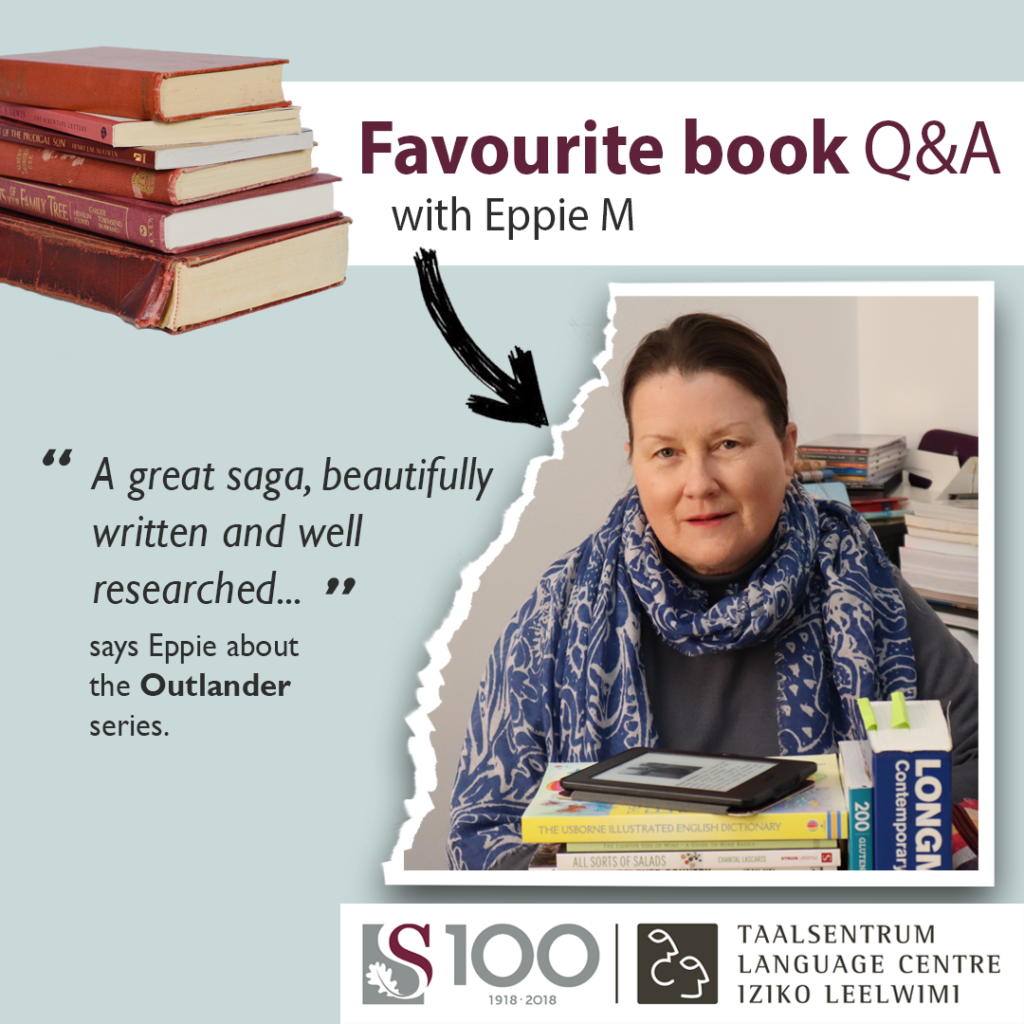Get to know us through the books we read! Every first Friday of the month we’ll share an interview with a Language Centre staff member on a favourite or memorable book.
Eppie McFarlane is a TEFL instructor at the Language Centre and an English as a second language (ESL) teacher. (TEFL is the qualification that enables one to teach English as a foreign language. You can read more about the Language Centre’s TEFL course here.)
- Eppie, what is the title of your favourite book?
Outlander - Why is this your favourite book?
It’s a great saga, beautifully written and well researched – believable. - Who is your favourite author? Also tell us why?
Diana Gabaldon at the moment. I’m very taken with her great way of writing and her thorough research. - What are you reading at the moment?
The Outlander Series 7-book bundle. I have the eighth book on my Kindle. I am almost finished with book six. We watched the series and I am thoroughly enjoying reading the books. - What book have you re-read? Also tell us why?
Oh, many! My reading is my escape into a fictional world, so I love good-news stories. I escape into historical fiction as history fascinates me. As long as the English is well written, I will read it. I have read many great modern novels and I enjoy the classics. However I don’t willingly read science fiction, horror, Harry Potter, Lord of the Rings, or watch movies or series about them. - Who is your favourite literary character?
Currently Claire Beauchamp. Why? The way the author has taken the character through the time period that the books span is very interesting. - What book/books would you recommend to your students?
This is not an easy question to answer because it depends on the level of students, their interests and what they like reading. Novels are fine for higher-level students (upper intermediate up) but shorter books, including suitable non-fiction works, work really well for lower levels. For example, I love cooking and have many cook books, so I often share recipes and or cookbooks with students and (in a writing exercise) get students to write up their favourite recipes. I have a collection of them. Travel guides also work for lower levels, and other interesting non-fiction books, like information about plants, animals and places where students are staying or where they plan to visit. Poetry seldom works with EFL students (students who are learning English as a foreign language) and comic books are patently unsuccessful too due to the non-literal meanings. I guess what I am saying is that it is a difficult question to answer, and I would address it on a case-by-case or student-by-student manner.




